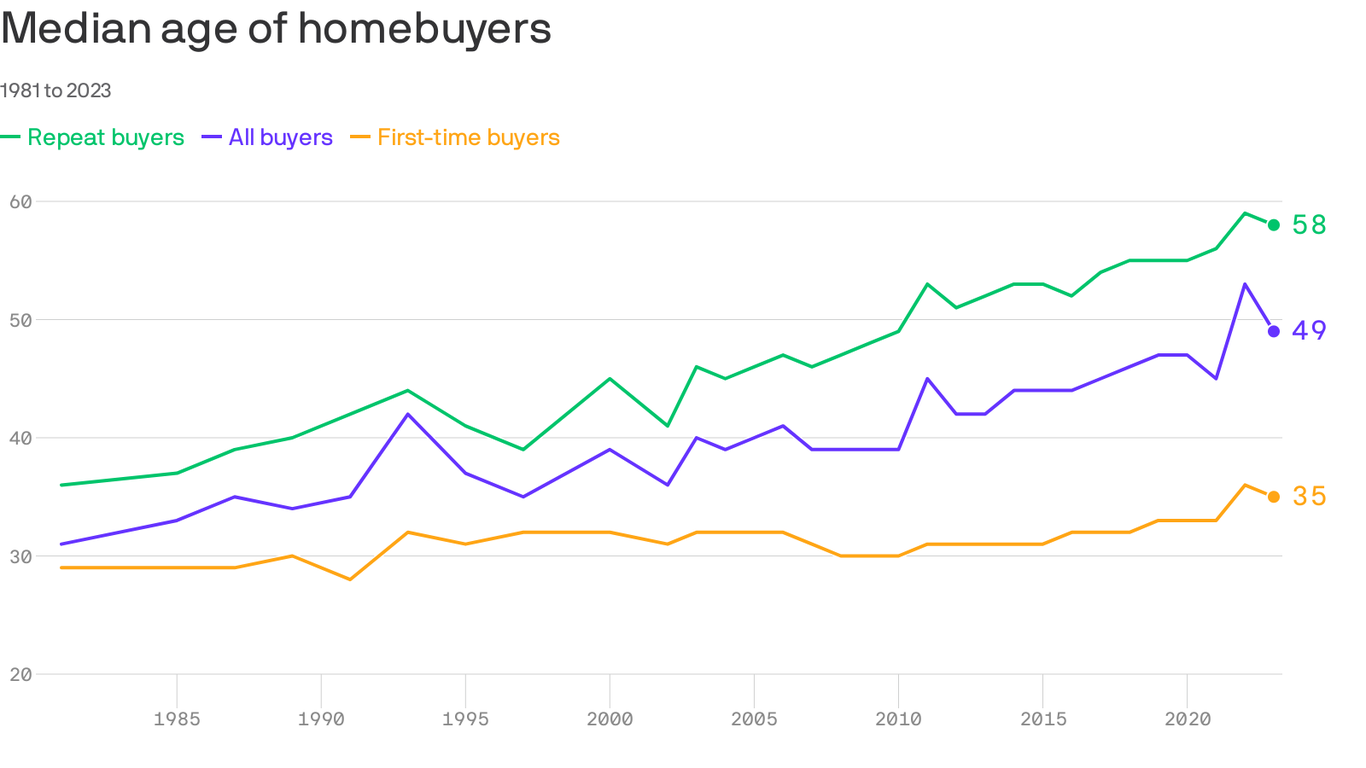Not that it makes it better, but I wonder what the stats are for first-time homebuyers. People are buying second and third homes now and driving up the average age.
Which I hate.
Just post something 💛
Not that it makes it better, but I wonder what the stats are for first-time homebuyers. People are buying second and third homes now and driving up the average age.
Which I hate.
I found this:

Some of the buyers acquiring multiple properties for investment but some are just switching homes, getting bigger houses for growing families, upgrading to better locations or downsizing empty nesters. Older folks often sell their homes to buy something without stairs or with less maintenance. I suspect that fewer people are able to ever become 1st time buyers so all of the activity among homeowners has a larger impact on the median. :(
38
Are they buying second homes or just moving to a different one?
Because in 1980, the biggest population group was in their 20's/30's. Now the biggest population group is in their 60's/70's
The chart posted above seems to show a different issue:

More landlords! Yay!
..../wrist
This data points to people starting to buy houses later in life, and also continuing to buy houses later in life, but I'm not sure you can say it points to there being more landlords. I have been a repeat homebuyer twice in my life (and probably will be at least one more time), but each time it has just been moving from one SFH to another.
The biggest thing I take away from this is that waaaay more older people are changing houses these days (downsizing after kids move out or moving to senior-oriented communities maybe?) There's no way that individuals buying rental homes is more than a blip in that green line.
senior-oriented communities maybe?
The bane of my existence...
"Oh hey that house is actually affordable! ....oh 55+ community only. Great... Well here's a nice twice burned down shed masquerading as a house for "only" 300k what a steal!"
how much of that is rental restrictions? My condo was affordable because rental is not allowed which reduces many potential buyers.
Not sure tbh. We have whole communities that are just considered "55+ only" I just hate seeing them when I was looking for a house, it's so depressing.
You can filter them out on zillow
It’s impossible. I’d have to leave the place I call home to afford a house (which I’ll probably end up doing someday). At this point it’s no family and kids for me, no pets, I got a pension and play the stock market when I can, work per diem, otherwise just try to rent cheap, share a car, live minimally, and save money for seeing the world with my partner. There are acquaintances who tell me they’re jealous of my lifestyle, which I can’t help but feel a bit uncomfortable with comments like that. If they took a closer look, they would see that there are plenty of comforts that I sacrifice.
Having low bills is a blessing but most can't do it due to having consumerism propaganda
The chart doesn't necessarily show what first appears.
E.g., if 50 years ago the norm was people living their entire life in the same house, and in 2025 the norm is to sell and buy a new house at retirement and every year thereafter, the chart would look very skewed (like this).
I'm not saying that's what is happening, but there isn't enough here to draw a real conclusion.
Edit: having seen the first time homebuyer chart, we still have a similar question. First time homebuyer age might not have changed much, but the percent of 30 somethings that is buying a home may have plummeted. Essentially, if someone is in an economic strata to but a home, that are likely to do so in their 30s. If they aren't in that strata they may never be able to buy.